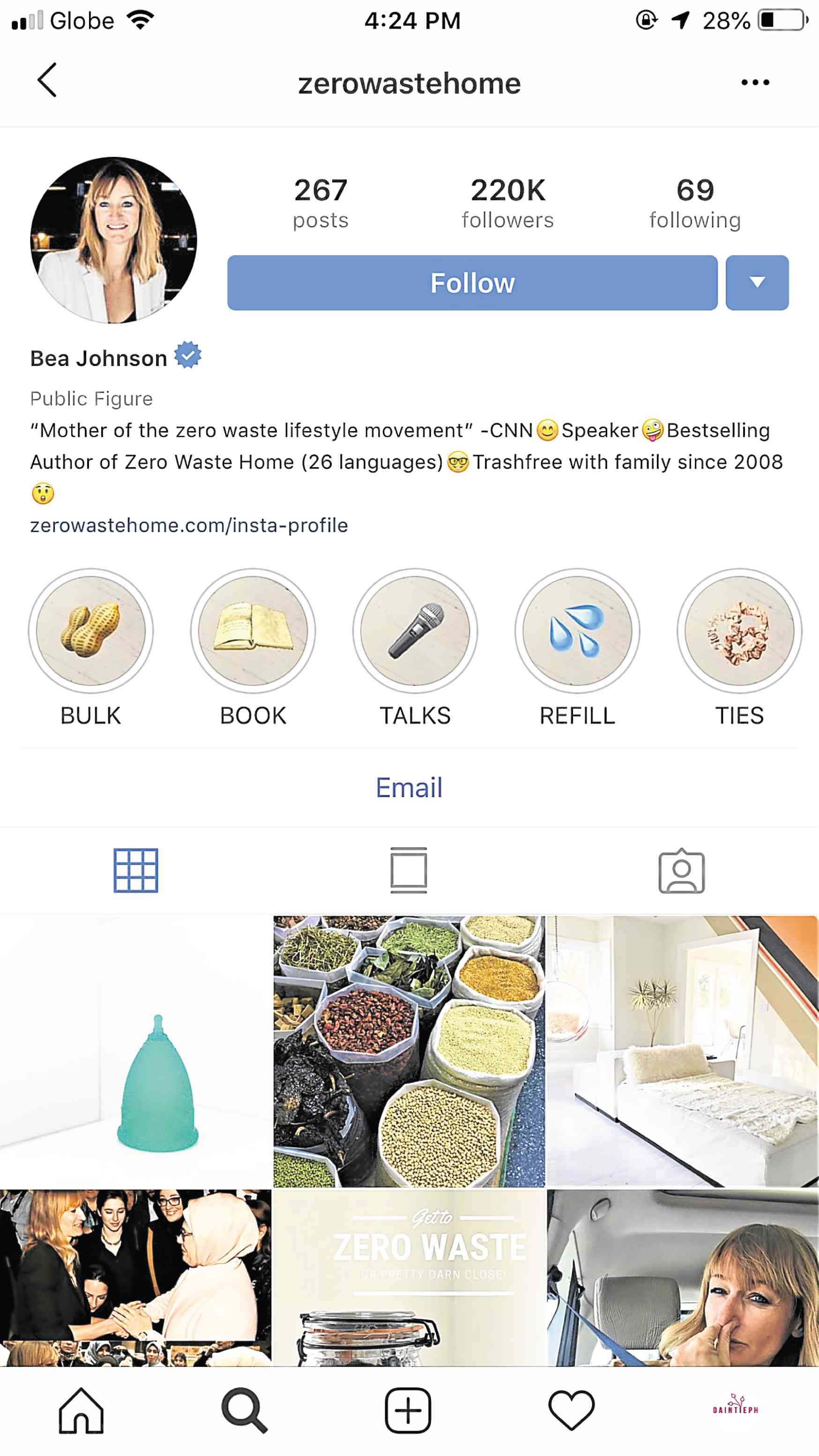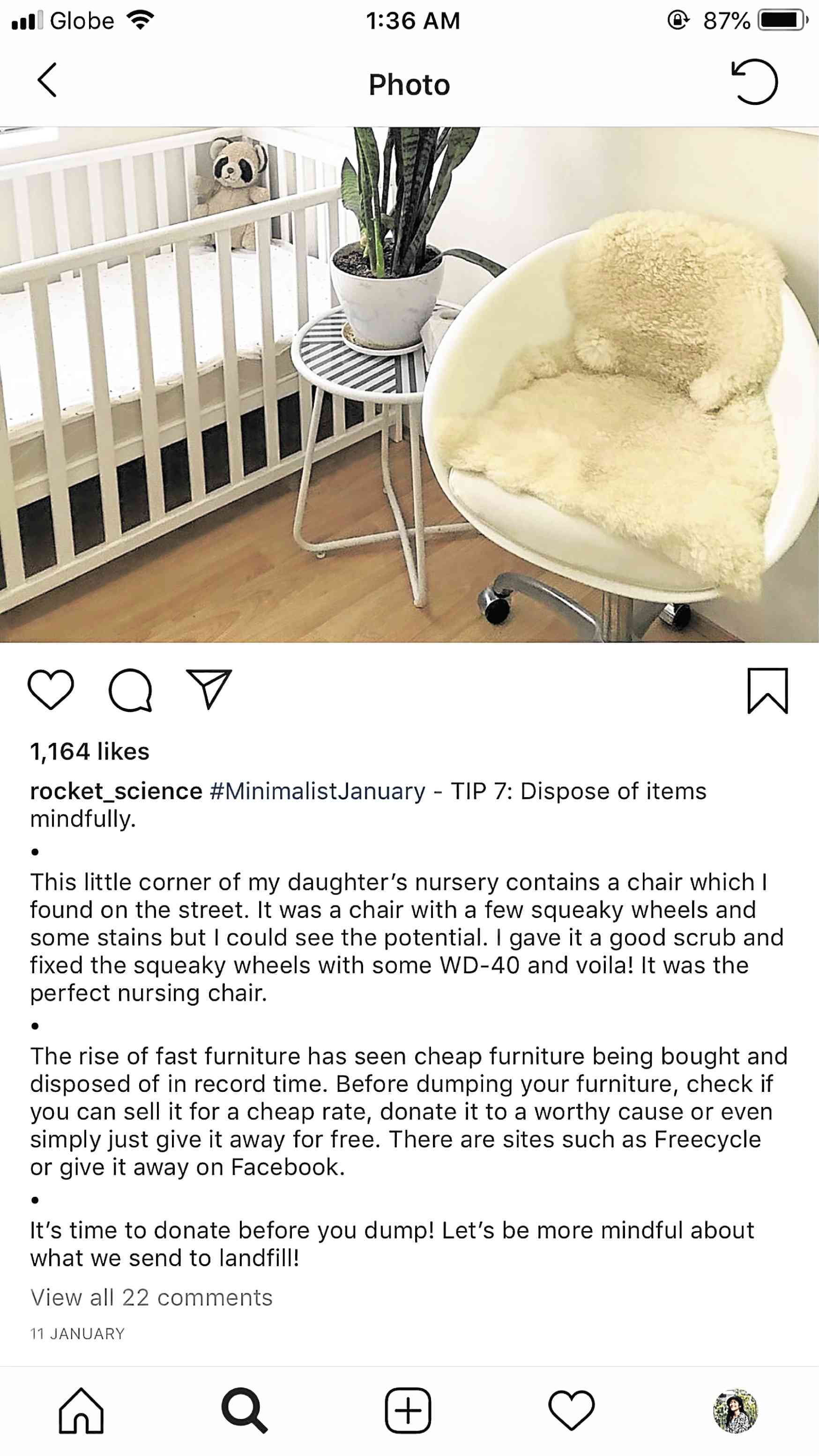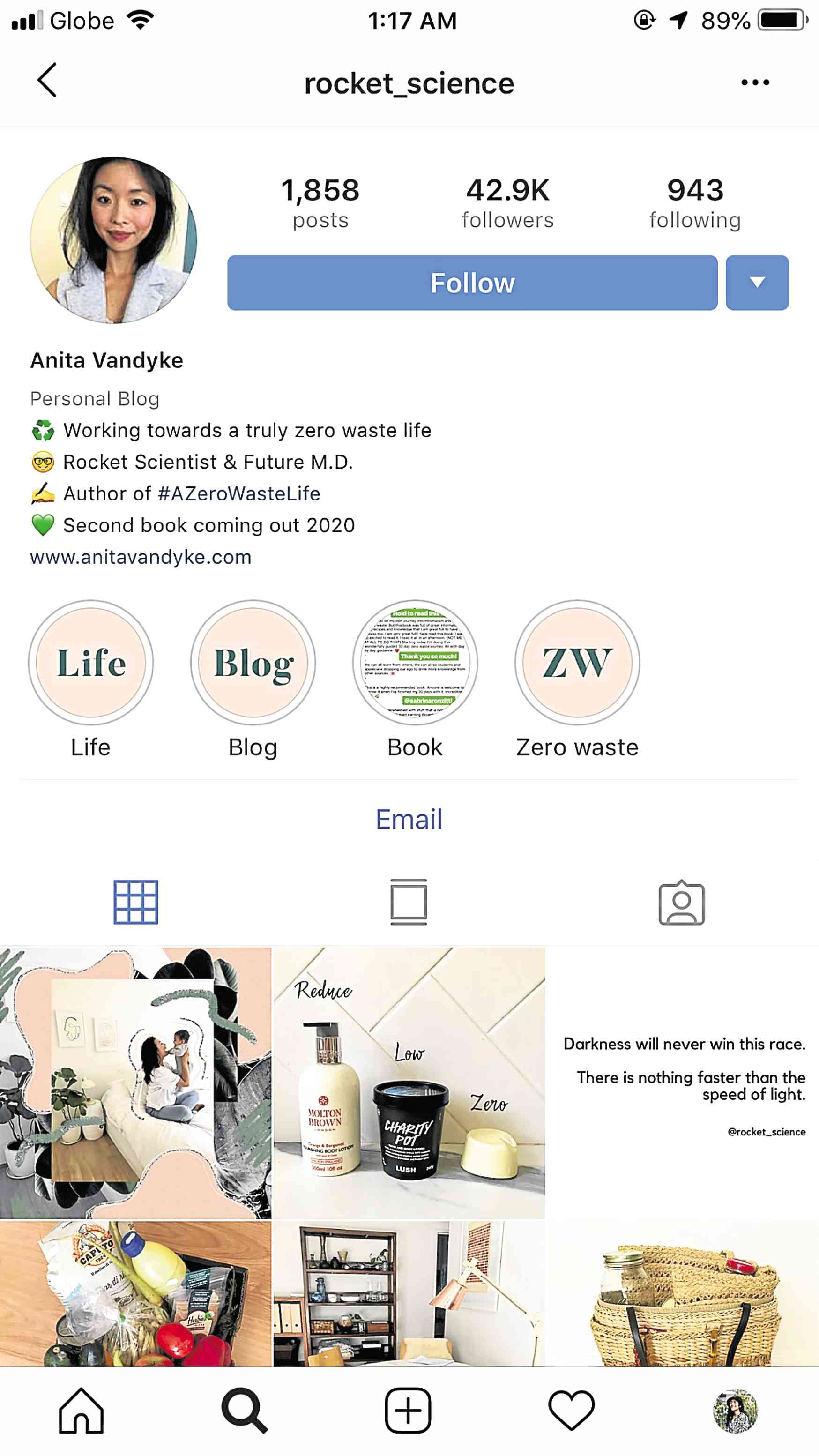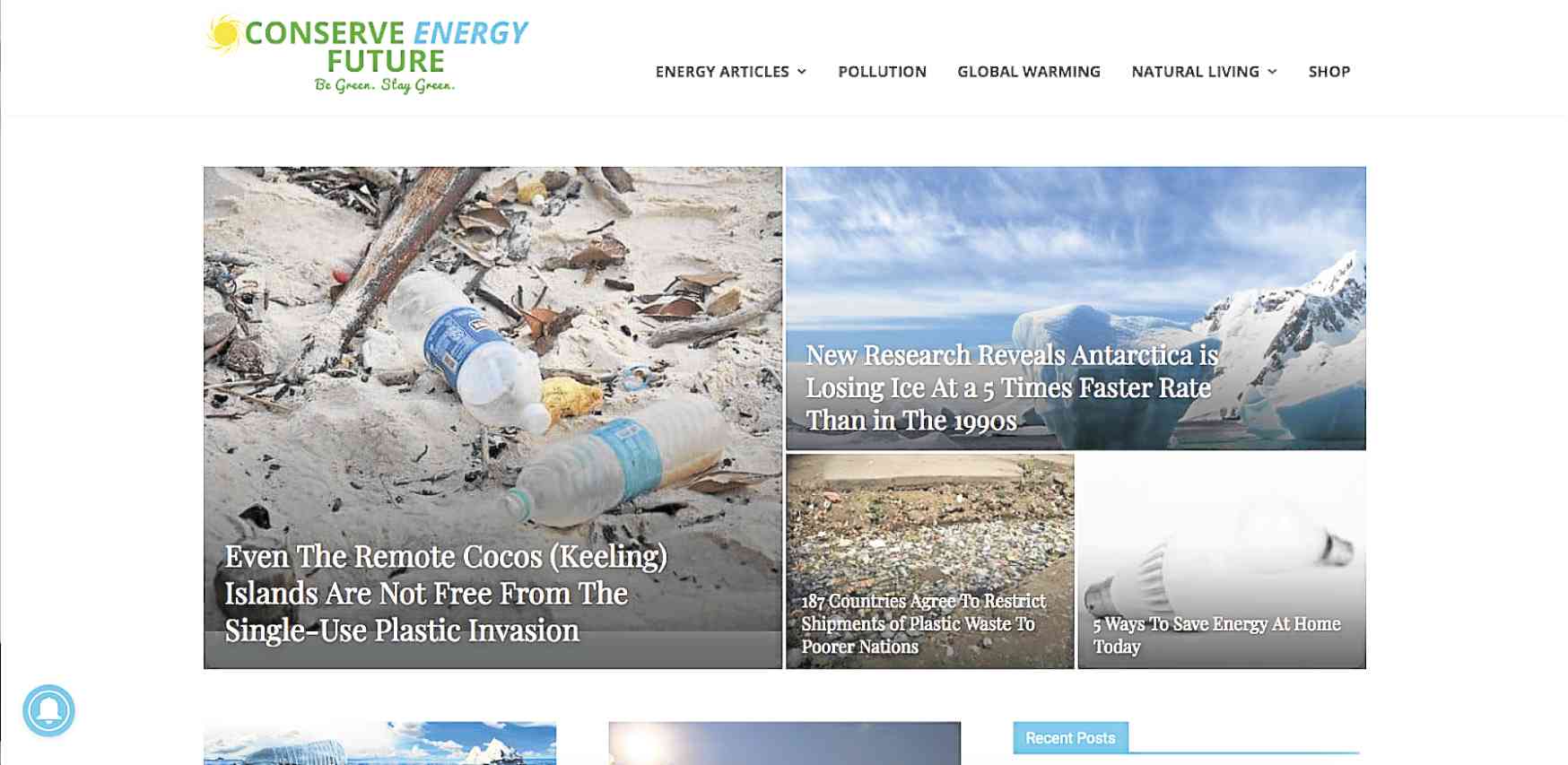How to live sustainably in a plastic-dependent country
A 2017 study by US-based Ocean Conservancy found that the Philippines, China, Indonesia, Thailand and Vietnam produced half of the plastic waste found in oceans all over the world, with the Philippines contributing 2.7 million metric tons of plastic waste per year.
It would not come as a surprise if majority of this figure came from the homes of the very people wanting to reduce their carbon footprint.
But while the number of individuals wishing to switch to a more sustainable lifestyle is increasing day by day, it seems as though going “green” is always attached to the idea of spending more. And although having a
zero-waste lifestyle may seem like an expensive decision, these websites and Instagram accounts provide tips and insights that could change your mind.
Zerowastehome.com (@zerowastehome on Instagram)
Bea Johnson, author of “Zero Waste Home: The Ultimate Guide to Simplifying Your Life by Reducing Your Waste,” introduces her 5Rs methodology that has helped her family in producing only a liter of trash in a year: refuse what you do not need;
reduce what you do need; reuse what you consume; recycle what you cannot refuse, reduce or reuse; and rot, or compost, the rest.
Through the Zero Waste Home website, Johnson simplifies the guidelines she presented in her book into a list of just 100 easy tips, which are further categorized into eight: kitchen, bathroom, closet, laundry and cleaning, dining and entertaining, office, medication and gardening.
Johnson’s variety of tips range from simply switching from disposable kitchen supplies (paper towels, plastic sandwich bags, etc.) to reusable materials (rags and kitchen towels), to exclusively buying secondhand clothing and donating those that are no longer in use.
Dubbed the “mother of the zero-waste lifestyle movement,” Johnson also sells on her website reusable goods, such as jars, magnetic ironing mats and metal dust pans, that could last years and help families in reducing their waste at home.
Thingsthatmatter.ph (@thingsthatmatterph on Instagram)
Things That Matter started out with Rags2Riches, a fashion and design house aimed at empowering a community of social entrepreneurs and women artisans, in 2007. It calls its
supporters “advocates,” as living the “intentional lifestyle”
introduces the idea that voluntarily choosing to live sustainably is an advocacy in itself.
While mainly an online shop for “beautiful and meaningful products,” Things That Matter also has a blog feature, called “Joyful Stories,” where advocates, artisans and entrepreneurs share their stories of change.
Reese Fernandez-Ruiz, a social entrepreneur for 11 years, for example, wrote about the many questions she has encountered about sustainable living. Victoria Venzon, meanwhile, put together her own guide to ukay-ukay shopping in the Philippines, complete with an ukay-ukay checklist for a hassle-free trip to your nearest thrift store.
Anitavandyke.com (@rocket_science on Instagram)
A former “maximalist” who used to believe that the best life was to live one in excess, Anita Vandyke now hosts her own Instagram account where she constantly updates her almost 43,000 followers on her zero-waste lifestyle as a future medical doctor.
Vandyke effectively makes use of Instagram’s hashtag feature by changing it every month, coupled with a variety of tips on living her now minimalist life. Her #MinimalistJanuary tip No. 7, for example, is accompanied by a photo of a reused chair she found on the street while reminding her readers to dispose of items mindfully.
#AZeroWasteLife, named after her book “A Zero Waste Life: in thirty days,” leads to her general practices at home. One post encourages those living in apartments not to give up on composting by freezing their composts for later, and finding nearby bins where they could drop them off instead.
Rinkesh Kukreja, upon realization that man strongly depended on different types of energy to live, knew that there were only two things he could do: turn a blind eye on the effects of climate change and global warming, or take an initiative and do something for change.
He opted to go for the latter, and thus started conserve-energy-future.com, a website where he publishes posts related to topics such as solar energy, geothermal energy and natural living.
Under his natural living tab, you can find articles discussing sustainable living, such as eco-friendly approaches to interior design, where he relays alternatives to an energy-reliant lifestyle: switching to LED bulbs, growing your own food, and making your own furniture through the use of materials that are “kind to the environment.”
Kukreja also suggests ways to reduce expenses and wastes at home by considering solar power or simply unplugging
devices and going completely paperless.




